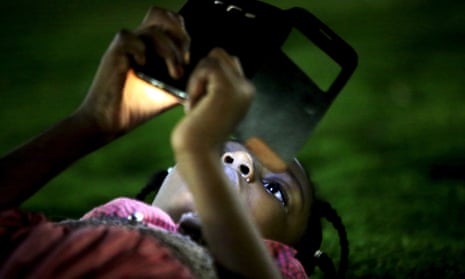It was Osama bin Laden who first earned Sudan a place on the US blacklist for state sponsors of terrorism.
The al-Qaida leader had been living in Khartoum for five years when America imposed a trade embargo and froze the government’s assets in the US in 1997.
Nineteen years later, Sudan remains on the blacklist alongside only two other states: Iran and Syria. A whole generation has grown up knowing nothing else, and while political analysts argue over whether sanctions help or hurt the current government, the crippling effect on the local population is undeniable.
As part of a debate on Twitter curated by @Sudan_Voices, hundreds of people have been sharing their experiences of #SudanUnderSanction, showing how the restrictions affect their lives.
They report blocked websites and services, difficulty travelling, limited scholarships and job opportunities, and a ongoing sense of isolation from the rest of the world.
Takes me 27 hours to fly home, so I can spend 5 days with my family. And then embark on another 27 hour journey back. #SudanUnderSanction
— Shahd (@Shahdddd) August 15, 2016
Because of restrictions on trade, local businesses also struggle to import goods and make international payments due to bans on foreign money transfers.
These restrictions have been tightened since 2014, when French bank BNP Paribas was fined $8.8bn to settle charges that it hid $30bn in transactions that violated sanctions.
@Sudan_Voices let's not forget the cost of doing international business for Sudanese , which eventually will add up to the consumer burden
— Nadir (@black_2_black) August 14, 2016
Young people in Sudan also described daily isolation from the global community through blocked websites, phone apps and services, having to turn to virtual private networks (VPN) and proxies to trick servers about their location.
Need a new browser and want to try out Google Chrome? Sorry mate. #sudanundersanction pic.twitter.com/Q7hxupCfW0
— Voices of Sudan (@Sudan_Voices) August 14, 2016
Well, Let's start with my Iphone I can't Update my Applications or install a new one ! #SUD #sudanundersanction https://t.co/eYLPdQ8pJf
— محمد الناصر Mohamed (@alnasermohamme1) August 14, 2016
Dude, I can't even snapchat while on beach/pool wearing scanty underpants ¯\_(ツ)_/¯ #SudanUnderSanction(s) https://t.co/impIB7ZSqx
— Usamah Mohamed أسامة (@simsimt) August 14, 2016
Vpn is being a lifestyle 😪 #sudanundersanctions https://t.co/Okaz1IF3dX
— * (@yasir_elhadi) August 14, 2016
No transfers
People living in Sudan are also barred from online work that requires international money transfers for payment, directly restricted under the US Office of Foreign Assets Control.
@Sudan_Voices No payment from online jobs because no bank transfers, and opening a bank account here is useless.
— PsychoTheRapist (@Danceremi_) August 14, 2016
For people who try to make their living online, like Sudanese video blogger Muaz Osman, who has 38,718 YouTube subscribers and more than 2.6m views, it is almost impossible to make profit from digital content.
I can't get paid for my videos from Google, I'm broke, I can't buy camera gear, broke again, I am single "it counts" https://t.co/bzXMx8Zbs7
— Muaz | مُعاذ (@Mu3azOsman) August 14, 2016
Tools that might help Sudanese users measure their internet presence and engagement, such as Twitter Analytics, are also unavailable to local users.
Even @Twitter ,they use us collecting our data and block developers' resources ,we can't even use our own data https://t.co/Vx4flRwSqK
— عمّاري (@el_ammari) August 14, 2016
These restrictions are particularly damaging for local software developers.
A group of coders based in Sudan won the African round of the Global Cyberlympics, but were unable to compete in the finals because of their country of origin.
And am not alone @Jaw33sh won the African round of the cyber Olympic but couldn't compete in the finals all the same https://t.co/Vx4flRwSqK
— عمّاري (@el_ammari) August 14, 2016
@Sudan_Voices
— WADDAH (@waddahFADUL) August 14, 2016
6
Most of the giant Infotech vendors are American firms so they don't deal with Sudan IBM,Cisco,Microsoft,Oracle,NetApp,Dell
Those who try and find a better life abroad say they remain limited by strict visa restrictions and limited scholarship opportunities.
So many scholarships are not awarded to applicants such as myself because my government is sanctioned #SudanUnderSanction #notmyfault
— Siddig Elhafyan (@Siddig93) August 14, 2016
As a response, many Sudanese people have called for modernised sanctions, which target governing individuals and entities, particularly those that serve to profit from Sudan’s monopolised economy.
The Enough Project, an NGO focused on ending genocide and crimes against humanity in Sudan and Congo, recently released a report proposing a new strategy for targeted restrictions that could minimise the negative consequences for average citizens.
They recommend sanctions that more sharply target the military and financial assets of those most responsible for the continuing conflict in the nation.
But for those in Sudan, there seems to be only one solution to the ever-growing economic strife and isolation - as this user suggests.
getting sanctions lifted is the only way #sudanundersanction https://t.co/xUHpgAj5hA
— YASBACK (@yassoon2015) August 14, 2016

Comments (…)
Sign in or create your Guardian account to join the discussion